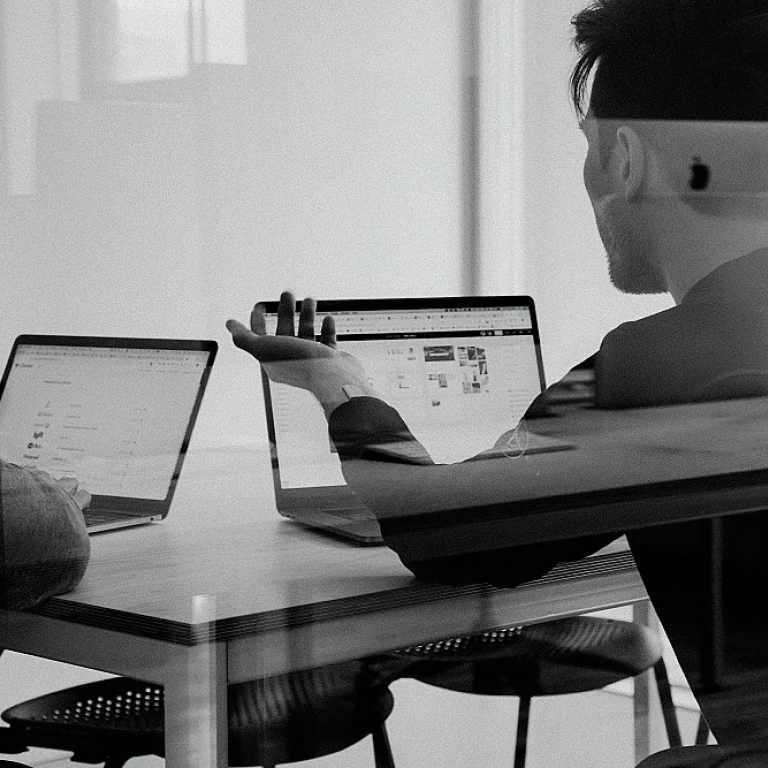Understanding AI's Role in the Workweek
The Role of AI in Shaping Today's Workweek
Artificial intelligence is increasingly becoming a pivotal force reshaping the modern workweek. As companies across various sectors integrate technology into their workflows, the influence of AI on our work lives is both profound and multifaceted. Perceived initially as a transformative tool for repetitive tasks, AI's presence has expanded significantly, touching every aspect of how we work. From production lines to customer service desks, the potential of AI to enhance productivity is evident. According to the McKinsey Global Institute, AI holds the potential to boost productivity growth by adapting how work is structured and optimizing time management. AI-driven tools are streamlining the daily operations of workplaces, enabling better data analysis and decision-making processes. This, in turn, permits workers to focus more on strategic roles that involve human capital, leading to potential economic growth and enhancing the workplace experience. However, this scenario is not without its complexities. While AI aims to boost productivity, it also brings to light concerns about job losses in the short term, especially in the private sector where automation might substitute routine tasks. The impact of AI is not solely about job displacement. It's about transforming occupations and the labor market to accommodate new kinds of roles that harness AI capabilities. This shift is crucial for remote work scenarios, allowing more flexible work schedules and potentially reducing the traditional nine-to-five day workweek. For many employees, this means a better balance between professional responsibilities and personal time, ultimately enhancing overall well-being. The insight derived from AI technologies will continue to evolve, making it essential for businesses to stay ahead of trends in workforce management. To explore how AI is driving such changes, we invite you to read more on the transformational impact of AI on workforce management. Understanding AI's role in the workweek is crucial as it represents not just a shift in operations but a rethinking of the way human resources are managed, influencing productivity and the workplace landscape as a whole.AI and Productivity: A Double-Edged Sword
AI as a Double-Edged Sword for Productivity
Artificial intelligence (AI) has become a pivotal tool in shaping productivity across various sectors. While its role is undeniable in enhancing the efficiency of numerous occupations, AI's integration into the modern workweek presents a complex scenario. AI-driven technologies have the potential to automate repetitive tasks, allowing human capital to focus on higher-value activities that require critical thinking and creativity. This automation has led to significant productivity gains, enabling businesses, especially in the private sector, to boost productivity levels. However, this surge in efficiency often comes with its own set of challenges. In the short term, AI-driven automation could lead to job losses in sectors reliant on routine tasks, impacting the labor market significantly. As workers adapt to new roles, the stress of transitioning may impact their net productivity and well-being. Thus, while AI promises economic growth and a dynamic workplace experience, the transition may not always be smooth for employees. Moreover, productivity gains introduced by AI can lead to an imbalance in work-life dynamics. With the advent of remote work, employees may find themselves working longer hours, with blurred lines between work and personal time. While AI tools offer the flexibility of a four-day workweek, the reality is that workers might find themselves spreading their work across seven days, negating potential benefits. In this delicate balance, employers must ensure that technology enhances, rather than diminishes, the overall employee experience. Companies should aim to foster a workplace where AI complements human efforts sustainably. The labor market's evolution fueled by AI calls for responsible adoption strategies that align with ethical standards, ensuring that we harness the productivity growth afforded by technology without compromising the future work landscape. For more insights on how AI is transforming productivity in modern workplaces, you can explore the role of AI in transforming human resources. This resource delves deeper into the potential impacts of AI on work schedules, employee well-being, and organizational strategies.Impact on Employee Well-being
The Balance between Efficiency and Employee Well-being
The integration of artificial intelligence into the workforce has undoubtedly transformed how we manage our time, tasks, and overall work environment. AI systems facilitate higher productivity gains by automating repetitive tasks and allowing people to focus on more strategic issues. Yet, while AI can undoubtedly enhance efficiency, its impact on employee well-being is a nuanced and complex matter.
AI-driven technologies are designed to streamline operations and boost productivity, potentially leading to economic growth. However, they might inadvertently blur the lines between work and personal life. With the advent of remote work and flexible schedules, employees often grapple with distinguishing work hours from personal time, leading to burnout risks within various sectors. The private sector, in particular, experiences this shift acutely, given its emphasis on maximizing outputs and leveraging human capital.
Time management and occupational boundaries have become vital as AI influences work schedules. Data suggests that while automation tools reduce the net time allocated to mundane tasks, they require workers to adapt swiftly to new technology and workplace changes. According to the McKinsey Global Institute, automation possesses the potential to transform jobs but may also pose a threat if not managed carefully.
In cases like customer service, where interactions were traditionally human-led, AI has introduced significant changes in the day workweek, creating novel workplace experiences. This shift, although positive in terms of efficiency, raises ethical considerations. Ensuring workers are not excessively burdened and protecting mental health is imperative for creating an equilibrium. Moreover, AI's capability to predict workload demands poses both opportunities and challenges for human resource departments aiming to balance productivity growth with employee well-being.
AI's Influence on Work Schedules
Alterations in Work Schedules Driven by AI
Artificial intelligence is making significant changes to how companies manage time and schedules. With AI-driven tools, businesses are moving away from the traditional 9-to-5 workday. This evolution is not just shaping workweek patterns but redefining productivity and flexibility in the workplace. The introduction of AI in scheduling allows for more adaptive and personalized workweek structures that cater to individual needs and enhance productivity. This means, for instance, that remote work has become more prevalent and achievable, encouraging a day workweek that can be adjusted without compromising on productivity gains. In the private sector, especially, AI systems are optimizing work hours by analyzing vast amounts of data. These tools enable organizations to make informed decisions regarding labor allocation and task prioritization. Moreover, AI has the potential to predict workload fluctuations, reducing bottlenecks and allowing for a balanced distribution of tasks throughout the workweek. Moreover, the impact on occupations like customer service is profound. AI-driven automation manages routine inquiries, freeing up human workers to handle more complex interactions. This shift not only boosts productivity but also improves the overall customer experience. Ultimately, this technological integration raises questions about the long-term implications for job security and labor market dynamics. However, in the short-term scenario, the flexibility and efficiency provided by AI in work schedules have shown to enhance the net potential for human capital, bolstering economic growth according to studies by institutions such as the McKinsey Global Institute. As AI continues to reshape the modern workweek, it is crucial for businesses and workers to stay abreast of these changes and embrace the opportunities and challenges that come with this technological advancement.Challenges and Ethical Considerations
Balancing AI Implementation with Ethical Practices
As artificial intelligence becomes more integrated into the workweek, it brings forth challenges and ethical considerations that businesses must navigate deliberately. AI's unparalleled data-processing capabilities can optimize tasks and drive remarkable productivity gains. However, the potential for job losses and unfair labor practices poses significant ethical questions that need addressing.
One major concern is the displacement of jobs due to automation. While technology can boost productivity and lead to economic growth, the human impact cannot be overlooked. The McKinsey Global Institute reports that millions of occupations could be affected by automation, particularly in sectors like customer service and the private sector. This scenario poses a direct challenge to maintaining human capital while embracing the future of work.
Furthermore, ensuring privacy and trust is crucial. As AI tools collect substantial amounts of data to enhance workplace productivity, safeguarding this information becomes paramount. Companies must prioritize transparency about how data is used and implement robust security measures to protect it from breaches.
AI must also be deployed in a way that enhances the workplace experience for all workers. This involves crafting frameworks and policies that counteract potential inequities and encourage shared benefits from technology advancements. The shift to remote work and short-term projects indicates a need for balanced regulation and proactive communication to ensure a fair labor market that upholds workers' rights.












